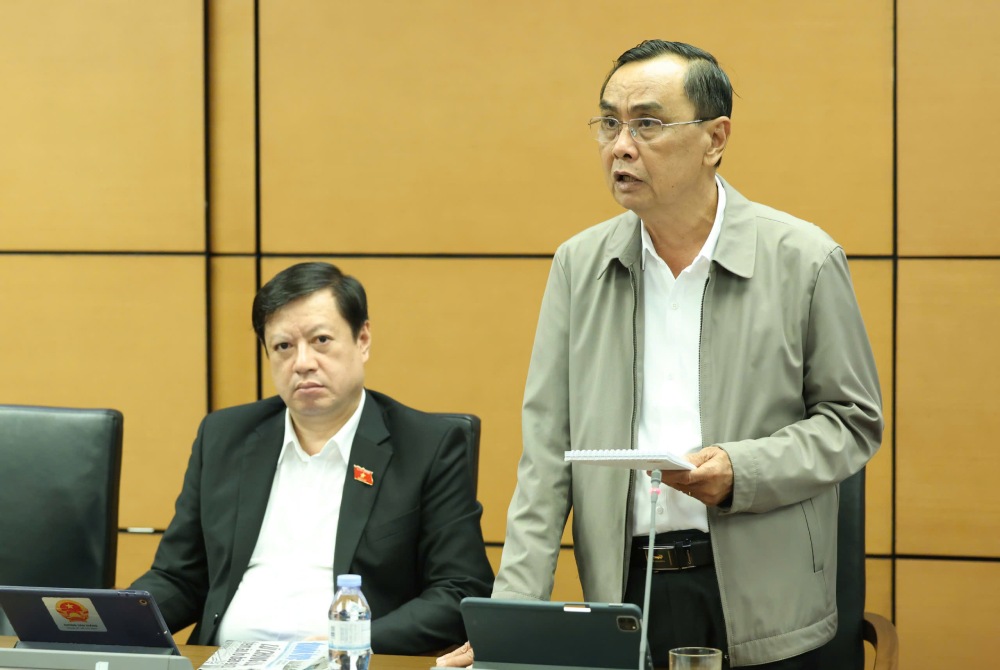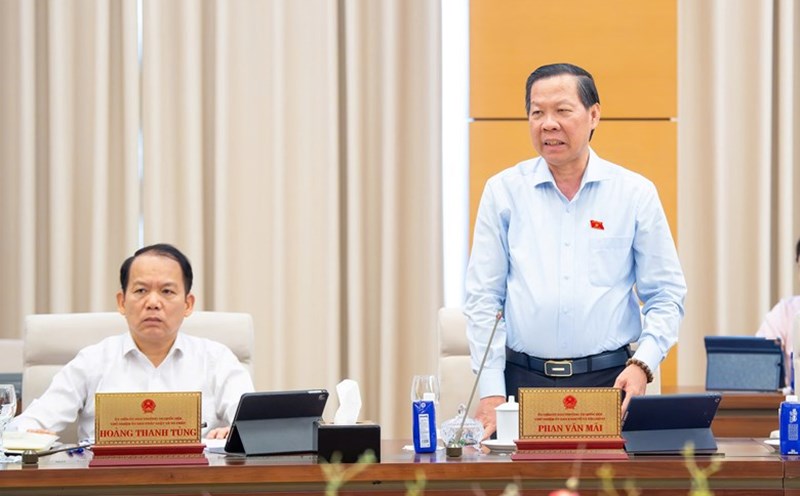Abandoned high-rise houses covered in moss
On the afternoon of November 5, the National Assembly discussed in groups the draft Law on Savings and Combat of Waste.
Delegate To Thi Bich Chau (HCMC Delegation) stated that in reality, there are many projects and works that have lasted for many years, "leaving the liver and the liver to die" causing huge waste. The delegate pointed out the waste of money of the State and the people, the waste of land, especially in urban areas with " Limited land and many people".
The female delegate expressed her grief at the reality of people living in cramped conditions while high-rise housing projects are abandoned and covered with moss.
Therefore, according to the delegate, there should be clear regulations, specific responsibilities, forms of punishment and a qualitative mechanism to assess those damages and waste.
Regarding the protection of information providers and those fighting against waste, the delegate suggested that there must be a clear mechanism similar to the Law on Anti-Corruption. Specific regulations are needed to protect information providers in cases where they are threatened, bullied or have their legitimate rights and interests violated.
According to the female delegate of the Ho Chi Minh City Youth Union, it is necessary to clearly identify the focal agency for receiving and processing information and have a mechanism to "anime" the person reporting.
With the regulation on public disclosure of savings and combating waste, the delegate suggested concretizing the content of public disclosure, especially regular expenditures and large expenditures, which need to have a specific threshold (for example, from hundreds of billions, thousands of billions or more).
Waste is found in many projects, scattered across the country
Participating in giving opinions, delegate Nguyen Minh Hoang (HCMC delegation) proposed studying current technical regulations on sanctions for administrative violations against cadres and civil servants in practicing thrift and combating waste that are not strong enough, not enough to deter cadres and civil servants in practicing thrift and combating waste.

The delegate said that there is still no national database on the public practice of thrift and combating waste.
Therefore, it is limited for people, cadres, civil servants and party members to access information to monitor, supervise and exercise citizens' rights in implementing people's thrift and combating waste.
The delegate pointed out that the country's current waste is concentrated in many projects, spread across the country, the waste is rampant and very large.
"Even if the infrastructure is not synchronous and unemployed, thousands of bachelors are trained through schools but are not allowed to use the right training profession, it is also a waste. Or the prolonged losses of factories and companies in the recent past that the Government has had to focus on handling are also a waste," Mr. Hoang stated.
In Article 9 on the responsibility to build and spread a culture of thrift and combating waste, there are 5 specific provisions on the responsibility of organizing agencies, measures integrated into education, the village values of the community, organizing regulations on the responsibility of citizens and business organizations.
However, the delegate said that it is necessary to add a clause in Article 9, which is the responsibility of citizens and civil servants to build a culture of thrift.











